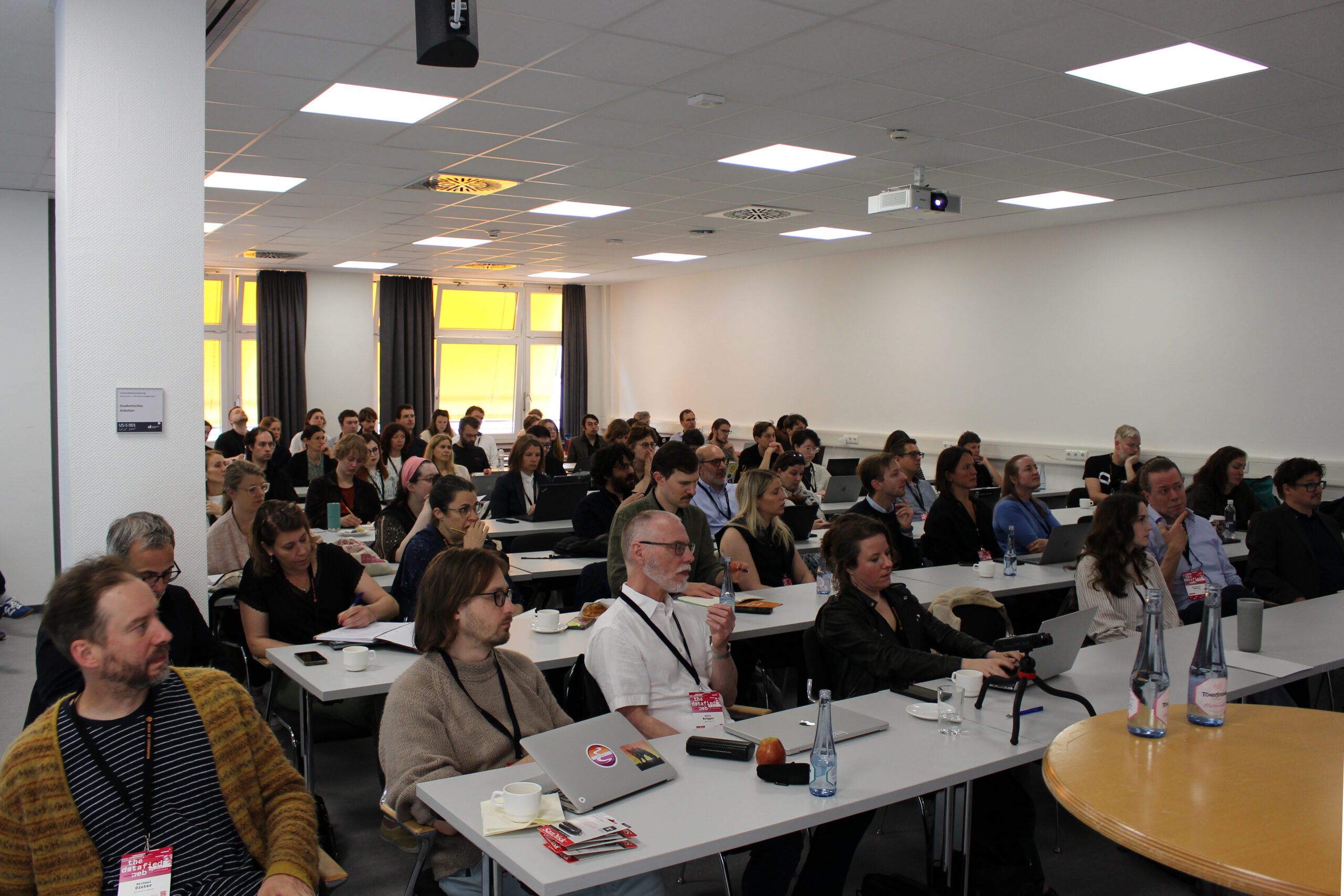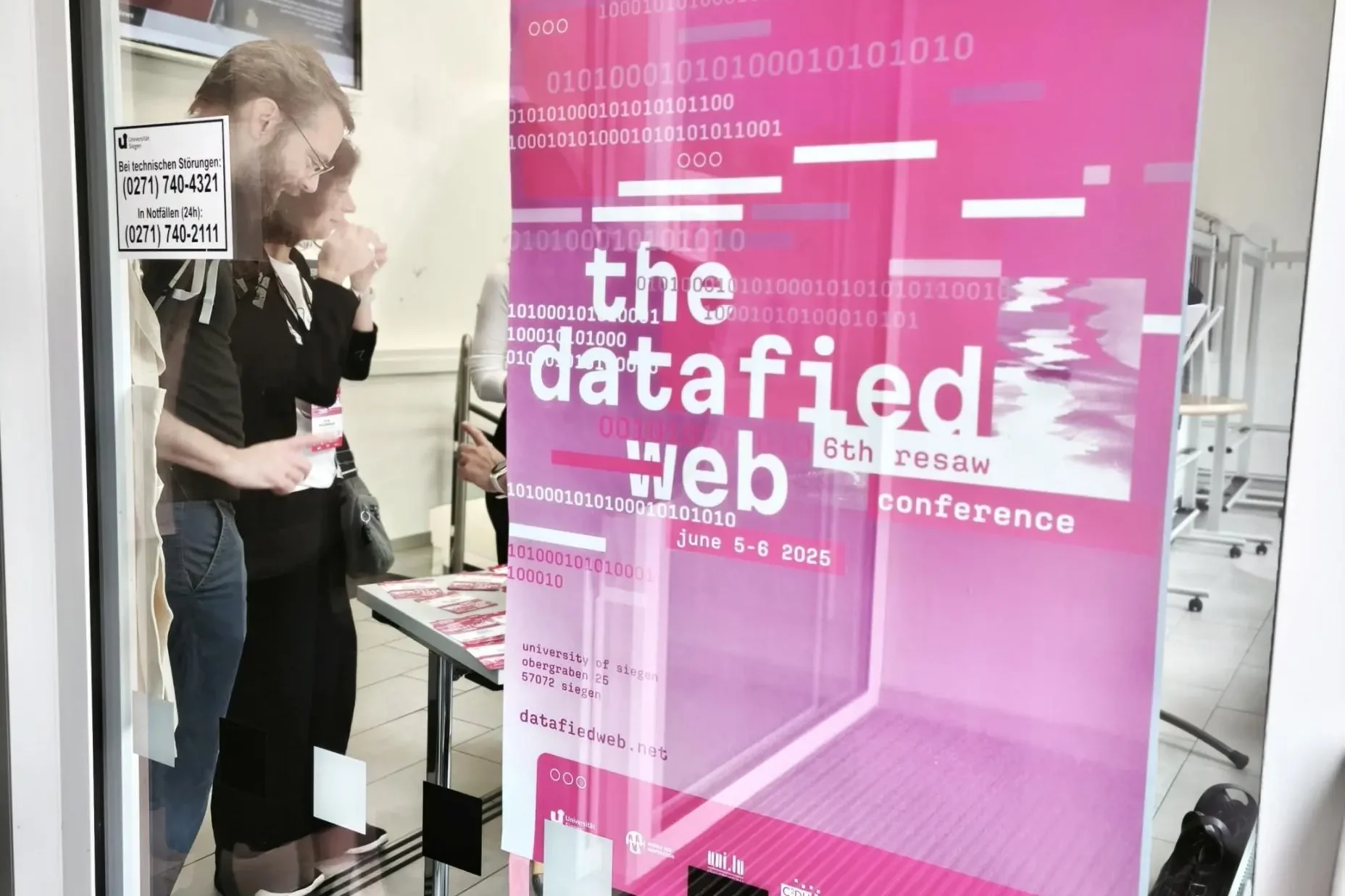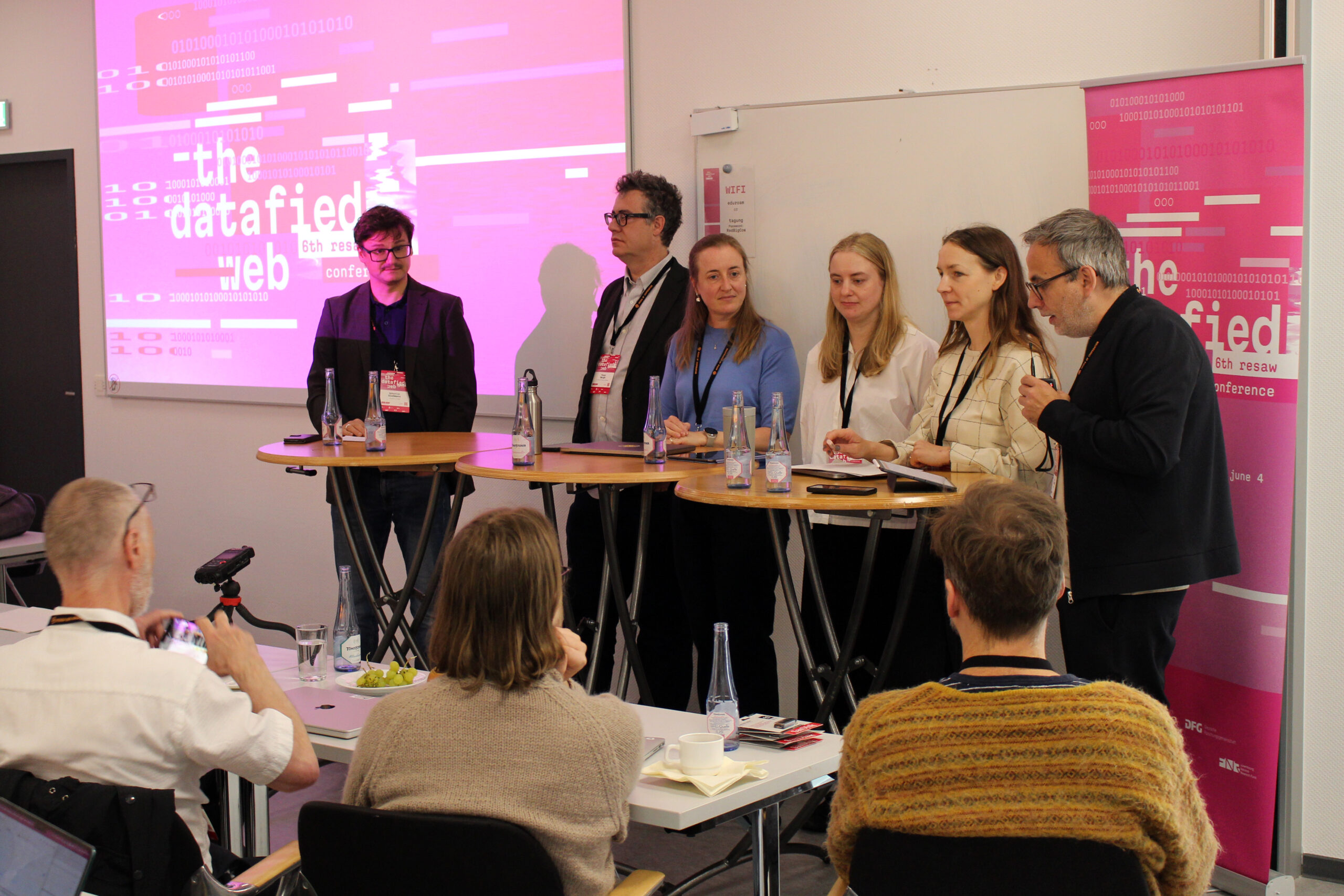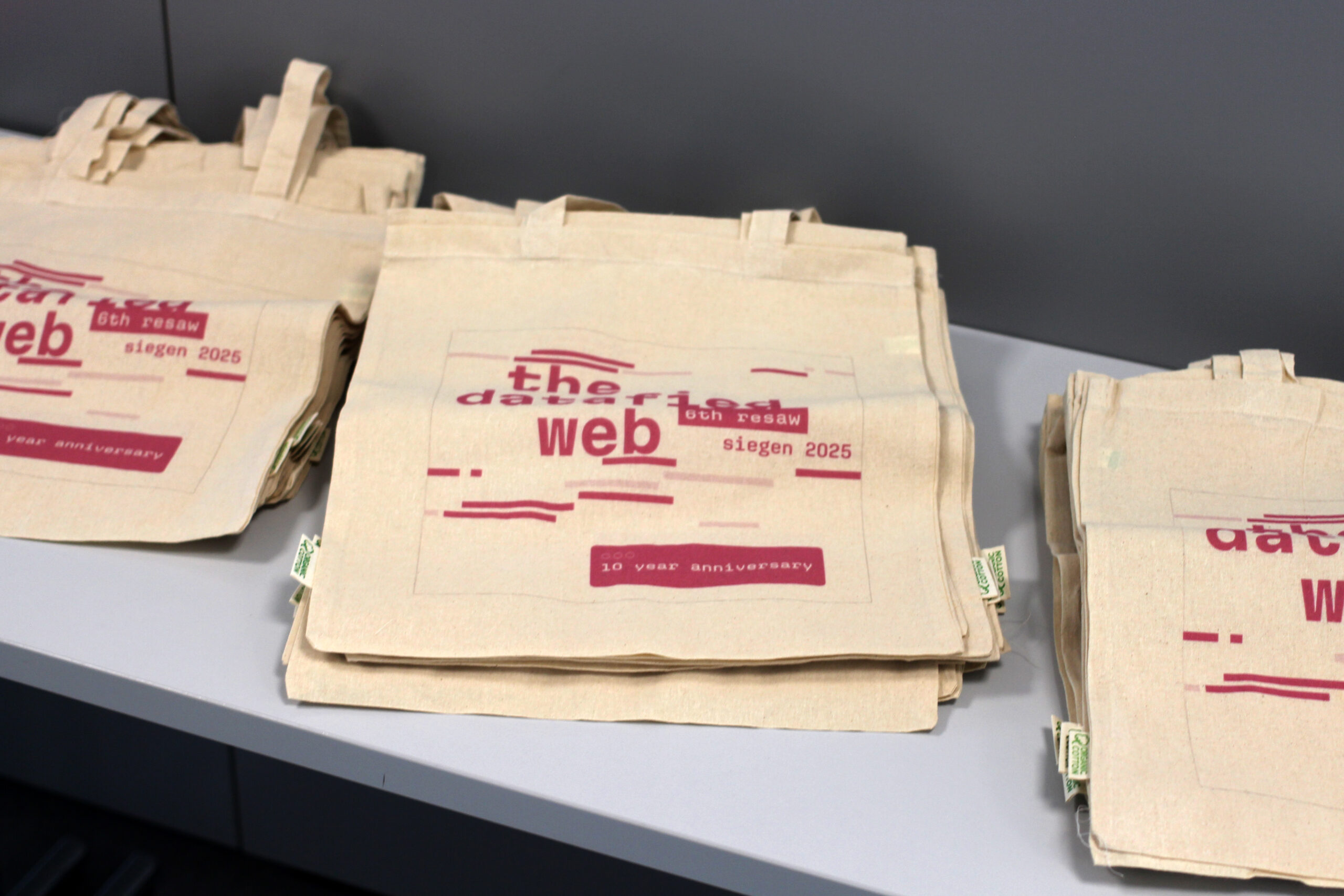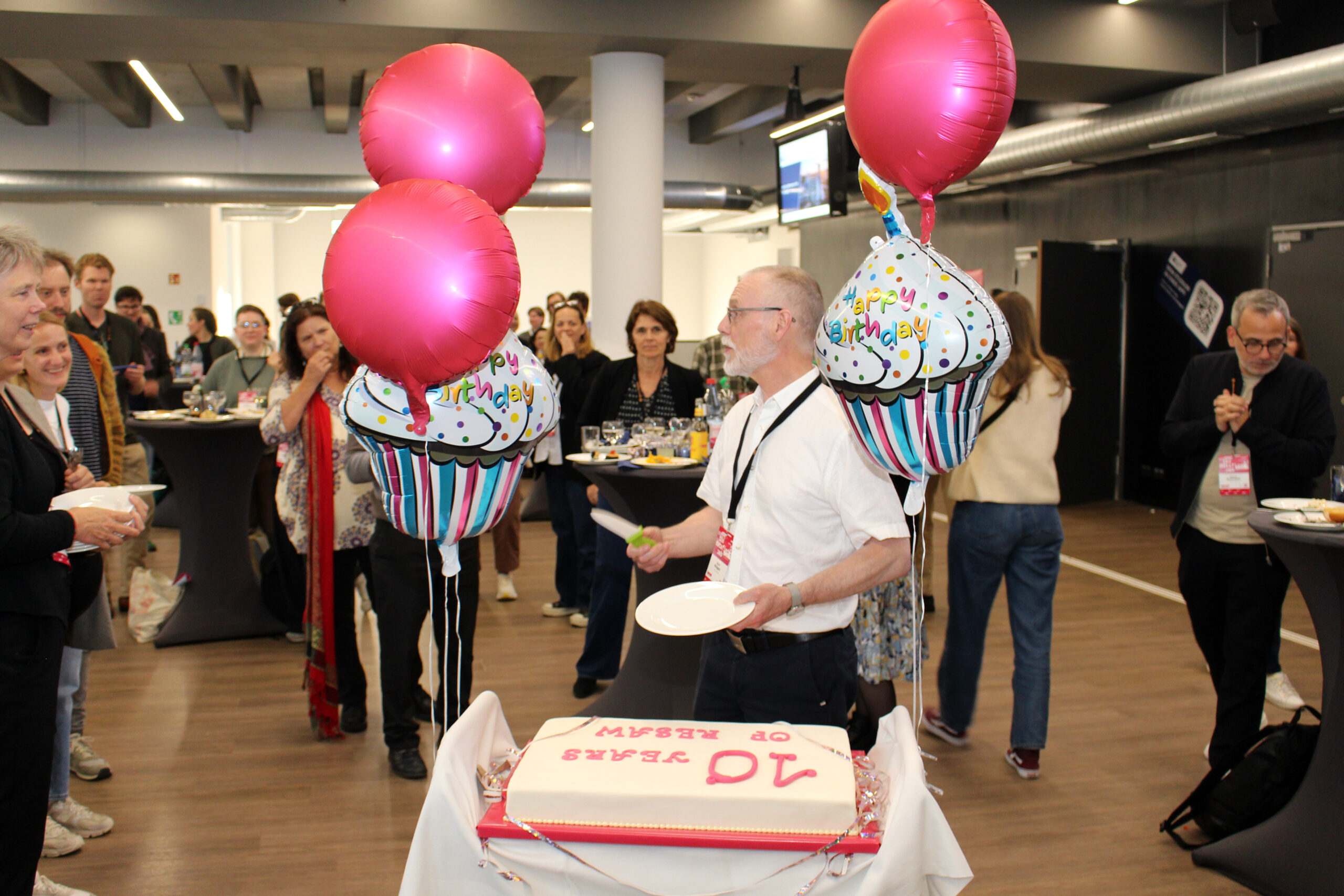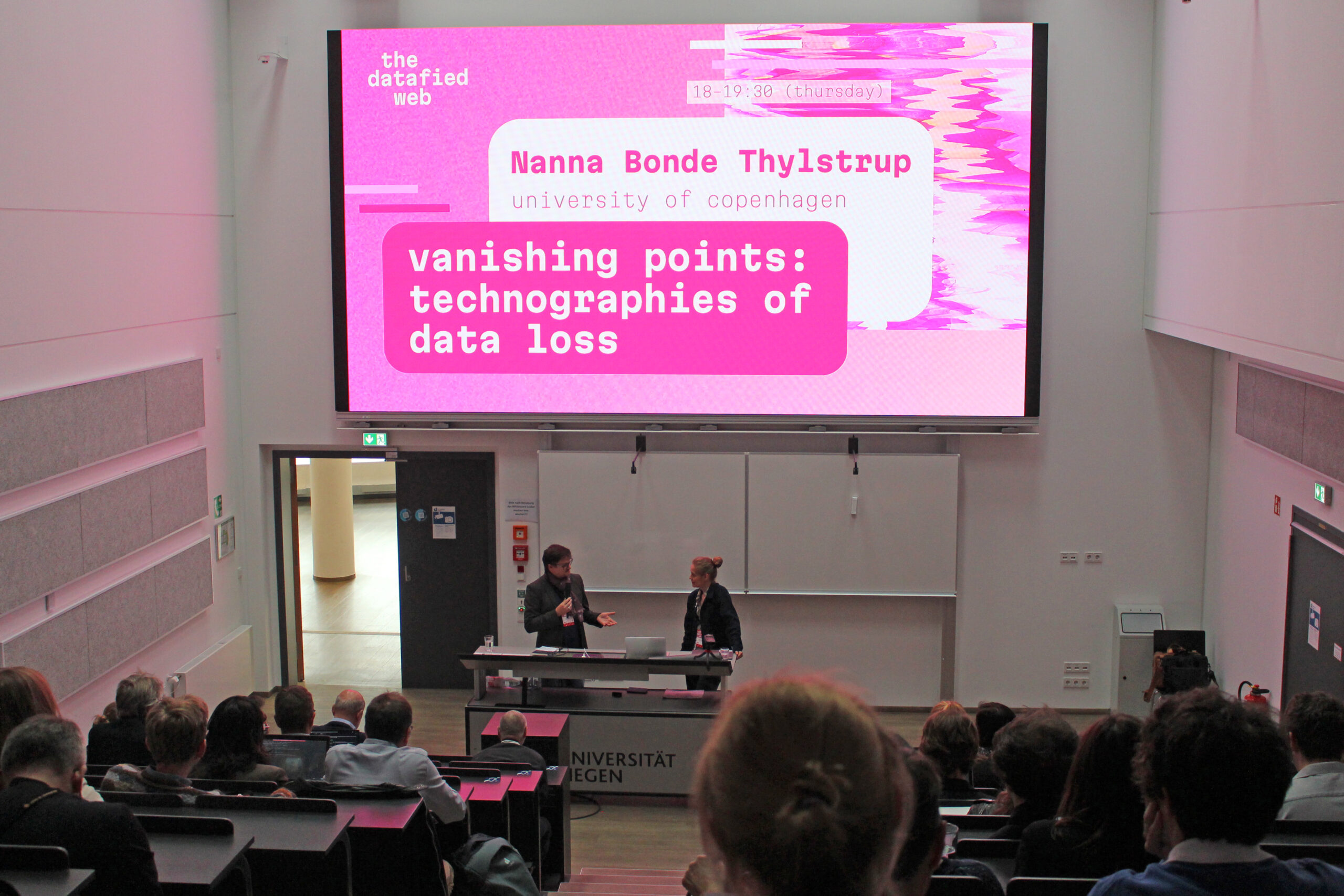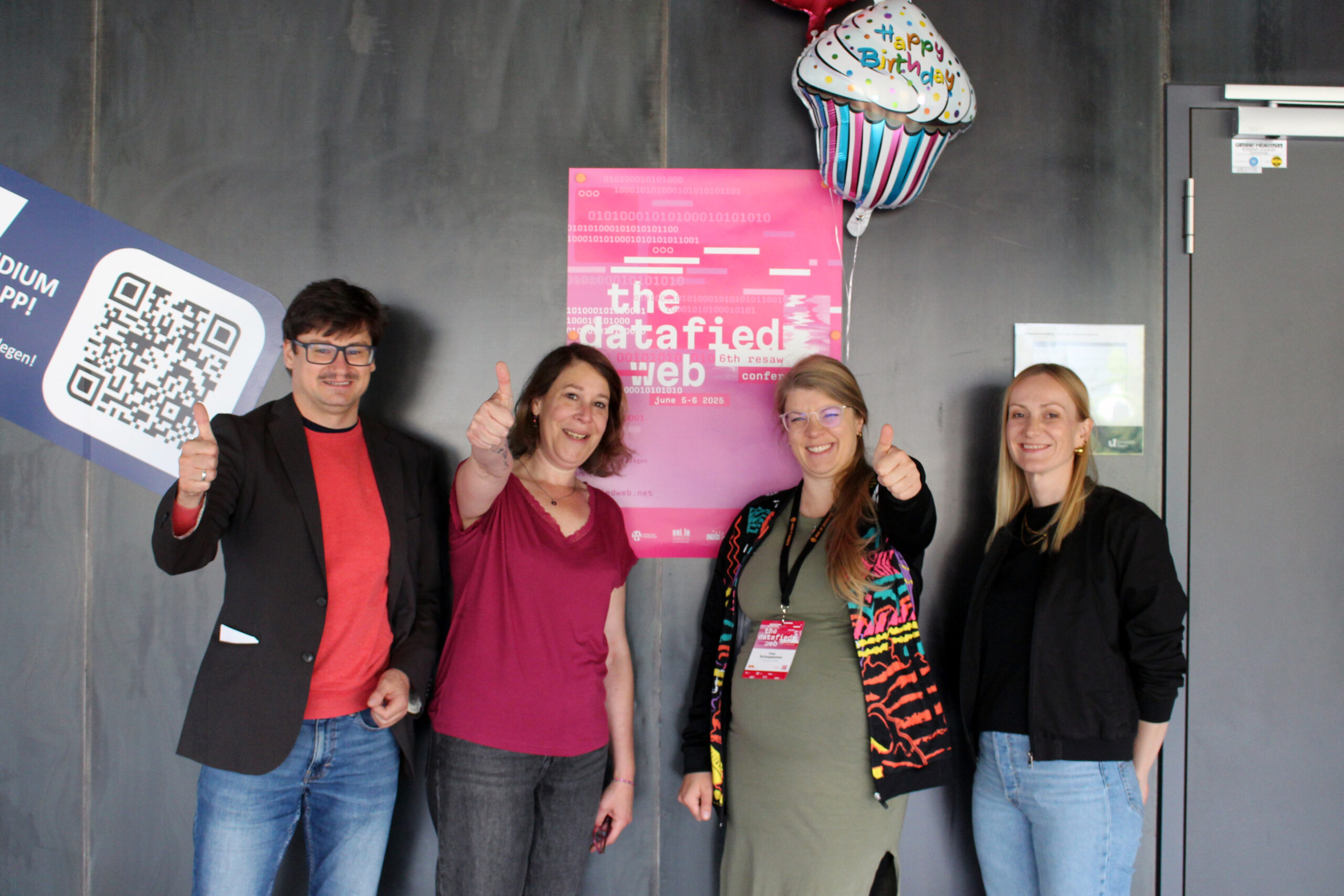Recap of “The datafied Web” – RESAW Conference in Siegen (4-6 June 2025)
The 2025 RESAW Conference: Data, Communities, and Food … for Thoughts
by Valérie Schafer (University of Luxembourg & CRC 1187)
The 2025 edition of the RESAW conference marked a significant milestone: the tenth anniversary of a vibrant and constantly evolving academic community. Since its inception in 2015, this conference series has brought together researchers, archivists, and practitioners from diverse fields concerned with the history and present of the web. This year’s event was memorable, not only because of the anniversary, but also due to the remarkable richness of the exchanges, the diversity of its participants, and the depth of the contributions. RESAW joined forces with the Collaborative Research Centre (CRC 1187) Media of Cooperation, both coming together to study The Datafied Web and to preserve its histories.
About the RESAW conference and community
RESAW is the acronym for A REsearch Infrastructure for the Study of Archived Web Materials. The RESAW community is dedicated to working with digital cultural heritage and gathers every two years at the eponymous RESAW conference. RESAW was founded in 2012 with the goal of building a collaborative European research infrastructure for studying and working with web materials while fostering knowledge exchange across Europe. This presents significant challenges for both research and the archiving of web-based information and objects.
RESAW 2025 – The datafied Web at the University of Siegen
The conference drew close to one hundred participants from across Europe and North America. Among them were long-standing members of the community – some of whom have attended every edition since the beginning, as well as many newcomers, and notably from the CRC team at the University of Siegen. This mix created a dynamic and productive atmosphere, with new ideas and connections flourishing. It provided intellectual renewal and disciplinary cross-pollination.
The central theme, The Datafied Web, acted as a powerful conceptual anchor, encouraging reflection on how datafication has been and is reshaping the web, our methods, and our understanding of digital studies and web archives.
While many presentations were directly aligned with the theme, the conference also remained open to a wide array of topics beyond the scope of datafication. This flexibility is a longstanding strength of the event, allowing space for discussions of current research developments, methodological experimentation, and new discoveries in the fields of web archiving and web studies. Contributions ranged from updates on national and international web archiving initiatives to exploratory studies in platform studies or qualitative and quantitative methods.
RESAW set out to trace how the datafied web became the sensory media environment we now inhabit. A web of predictive suggestion, of per-user variation, of AI-generated aesthetic and ephemeral interfaces. A web where “what you see” is a product of where you clicked, what you hovered, which model you unknowingly trained. To study this web—and to preserve its histories—that is where the research agendas of Resaw and MoC come together. (Carolin Gerlitz, spokesperson of the CRC 1187)
A significant number of talks examined The Datafied Web through historical perspectives. These included case studies on the evolution of technologies such as the CD-ROM and Bluetooth, and their interaction with or transition into web-based platforms, shedding light on the frictions and continuities involved. Others focused on pressing current concerns, such as data surveillance, algorithmic governance, and the political economy of web and platform infrastructures.
The datafication of the web has brought about a decisive transformation of capitalism – and capitalist economies have in turn datafied the World Wide Web. Our current platform economies are based on the historical development of cookies, web advertising, and the measurement of public data. (Sebastian Gießman, head of the conference)
The interdisciplinary character of the conference was particularly evident this year. Approaches drawn from Web and Platform Studies, the History of Technology, Archival Studies, Digital Humanities, and Critical Data Studies were all present, and in fruitful dialogue. This interdisciplinarity was reflected not only in the themes discussed, but also in the methods employed: from close analysis to distant and scalable reading, and from infrastructure-focused studies to content-based investigations. Such methodological diversity illustrates the richness of the field and the necessity of hybrid approaches to fully grasp the complexities of the web’s past, present and future.
The keynote addresses were among the highlights of the conference. Nanna Bonde Thylstrup’s keynote offered a historically grounded presentation on the theme of data loss, linking it to broader narratives of memory, preservation, and forgetting in the digital age. Jonathan Gray’s keynote, by contrast, was more oriented toward the present and near future, addressing the stakes of open data, and the role of researchers in shaping ethical and inclusive data practices.
Beyond the formal sessions, a variety of pre-workshops, social events, and targeted meetings enriched the experience. Early-career researchers were given space to receive feedback and engage in mentoring dialogues. Pre-conference workshops offered hands-on methodological training and collaborative problem-solving. Roundtables tackled timely and strategic questions, such as the future of our scholarly RESAW network, and the challenges of studying datafication in the opening roundtable. (A personal conference trip report by Lesley Frew that focuses on her experience and some of the sessions is also available).
Of particular note was the attention paid to the epistemological and methodological implications of working with web data. Whether focusing on the politics of web archiving, the limits of data transparency, or the possibilities of algorithmic critique, many sessions interrogated not only what we know, but how we come to know it and what remains excluded or erased in the process. Case studies drawn from diverse geographical, historical and linguistic contexts further enriched these discussions, reminding us of the web’s heterogeneity and the need for grounded, situated and reflexive perspectives.
In conclusion, the 2025 conference was more than just a commemoration of ten years of scholarly exchange and conferences. It was a powerful reaffirmation of the value of community, dialogue, and interdisciplinary collaboration in the face of a rapidly evolving digital landscape and more generally world. The themes explored, the connections made, and the questions raised will no doubt continue to inspire work in the years to come.
We would like to sincerely thank again all the local organisers, all the participants who made this edition such a success, as well as the DFG and FNR, the University of Siegen, the CRC Media of Cooperation, and the C2DH at the University of Luxembourg for their support to this event.
The 2025 RESAW conference was organized by the Collaborative Research Centre 1187 “Media of Cooperation” at the University of Siegen in cooperation with the Centre for Contemporary and Digital History (C²DH) at the University of Luxembourg. The conference is funded by the Deutsche Forschungsgemeinschaft (DFG, German Research Foundation) and the Luxembourg National Research Fund (FNR).
More
Press release by the University’s Press Office →
Conference report by Lesley Frew →
